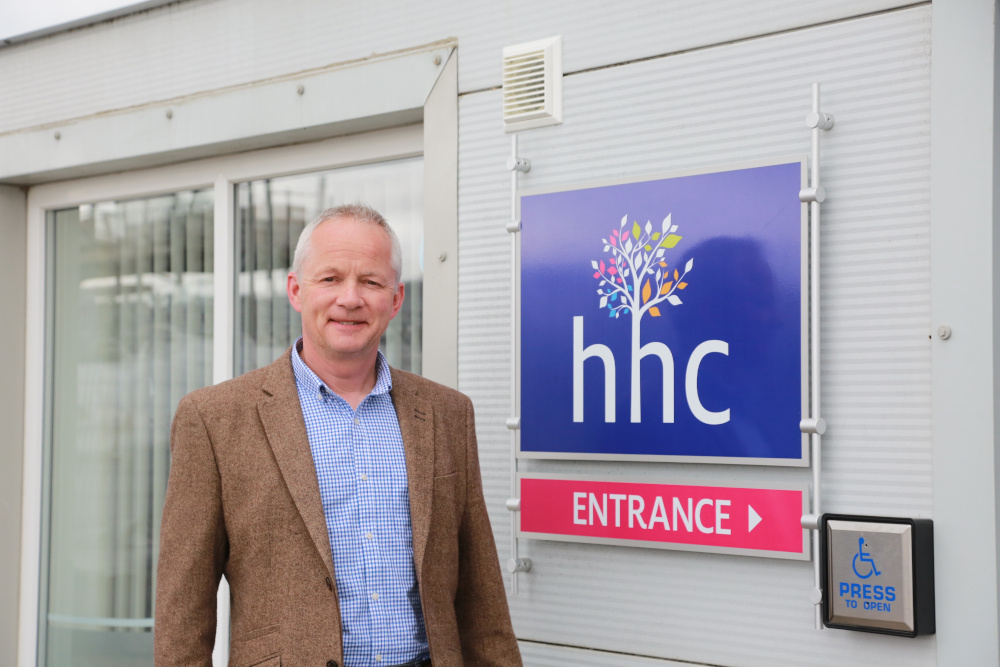Employee-owned businesses fared well during Covid-19 pandemic
Employee-owned businesses have demonstrated financial and social resilience in their approach to fair work in spite of the Covid-19 pandemic, new research has found.

Campbell Hair
A significant focus on people, job security, health, equality and wellbeing has led to increased business turnover and improved staff retention at a time when many businesses have experienced the opposite, according to research carried out by the University of St Andrews.
The research was commissioned by industry leadership group Scotland for Employee Ownership (SfEO) and Co-operative Development Scotland (CDS) at Scottish Enterprise and the findings, presented ahead of Co-operative Fortnight from 21 June to 4 July 2021, include:
- 90% of employee-owned businesses have all, or most of, their workforce located in Scotland
- 6% of employee-owned businesses have had minor or no issues with retaining employees
- 53% employee-owned businesses experienced turnover growth or did not have their turnover affected by the pandemic (Compared to non- employee-owned businesses: 80% of SMEs say their revenues are declining and 6% increase in revenue and 14% no change)
- 97% employee-owned businesses cited job protection as extremely or very important key organisational objective
- 67% of employee-owned businesses cited ‘paying the living wage’ as an extremely or very important organisational objective
- 75% of employee-owned businesses cited workplace equality as a key organisational objective
- 68% of employee-owned businesses say that employee voice is a key organisational objective
- 88% employee-owned businesses cited long term organisational sustainability as extremely or very important (this far exceeded a concern for share value growth, which was not at all important for 42.5% of employee-owned businesses during the Covid-19 pandemic)
- 83% employee-owned businesses considered employee mental wellbeing as extremely or very important
Clare Alexander, head of Co-operative Development Scotland, said: “Covid-19 has had a huge impact on the economy and this survey shows that a more collective approach to business can bring many benefits.
“The findings indicate that resilience among employee-owned businesses is both financial and social, suggesting important lessons for building back a better and more inclusive economy.
“Through the pandemic, Scottish Enterprise, through the CDS service, supported over 20 firms towards a shared ownership model and that fits with our business plan to create a more inclusive, equal and fair Scottish economy.”
Public Finance, Planning and Community Wealth Minister Tom Arthur, who also chairs SfEO, said: “I’m pleased to see this research, which clearly shows that employee-owned companies have fared better during the pandemic than their non-employee-owned counterparts.
“We need businesses that can nimbly adapt to change, while also contributing to a fairer, more inclusive society. Employee ownership, in my view, is a great way to help achieve our ambition of a resilient wellbeing economy.”
The employee owners at Highland Home Carers (HHC) in Inverness, Scotland’s largest employee-owned business, used its employee-owned status to support staff through the Covid-19 pandemic.
Over the course of the pandemic the company continued to provide pay increases, profit share schemes, enhanced sick pay and an extensive employee assistance programme.
Managing director Campbell Mair said: “In the face of a global crisis, we can all feel extremely proud of our organisation, our roles, and the work we do. We are right to say that each and all our workforce are an absolute credit to themselves, to our organisation, to social care, to the people who we care for and support, and to our communities.
“Being unswervingly committed to our employee ownership, and valuing our workforce so highly, means that we are delighted to demonstrate inclusive and sustainable growth, shared prosperity, and positive social impact by way of share distribution and profit share.”




